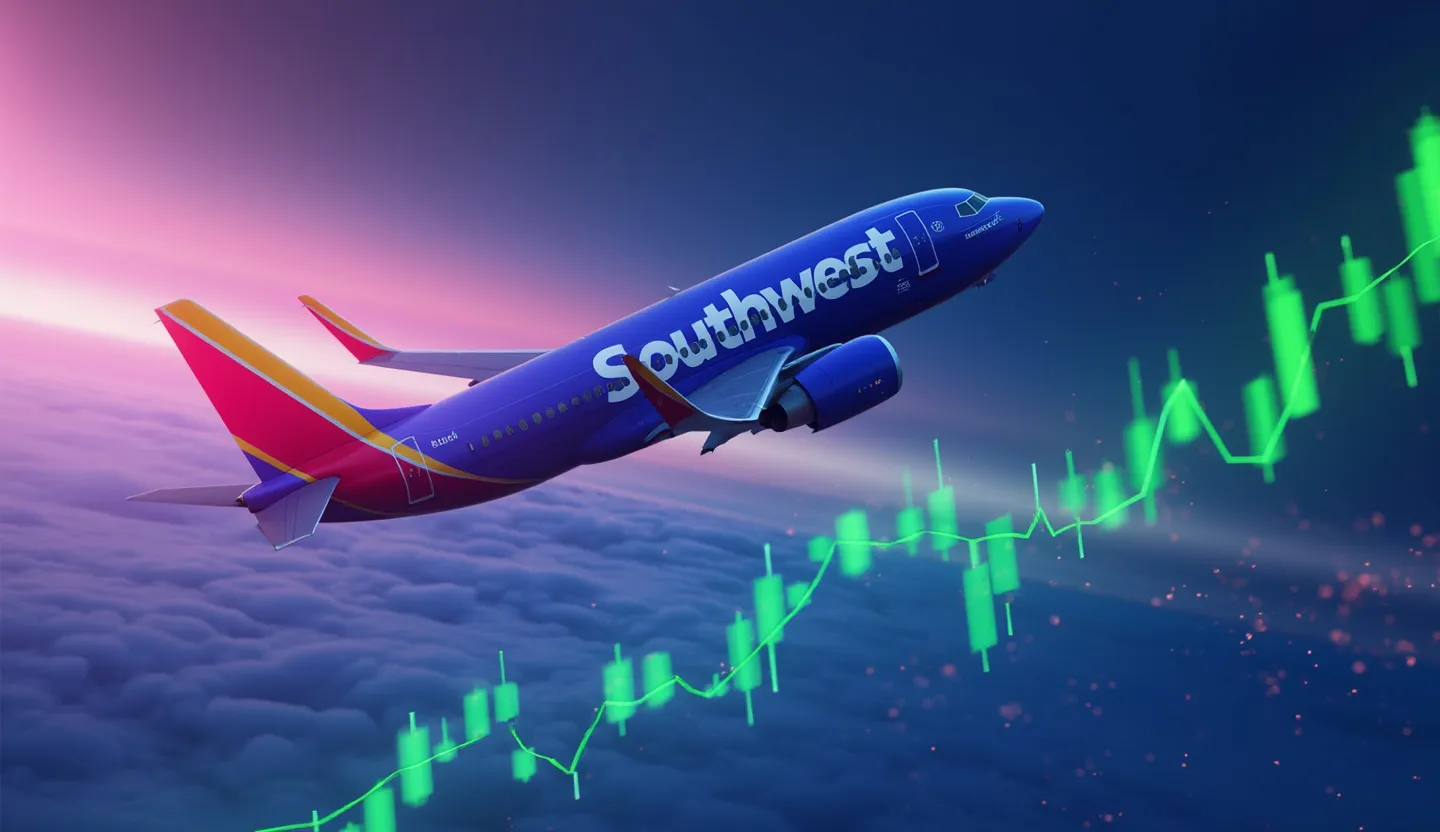The Shift in Analyst Perspective and Its Implications
Southwest Airlines Co. (LUV), a prominent player in the U.S. airline industry known for its low-cost business model and extensive domestic network, has recently caught the attention of investors following an analyst upgrade by UBS. The firm shifted its stance from a "Sell" to a "Neutral" rating, accompanied by an increased price target from $29 to $36. This move comes at a time when the airline industry is grappling with post-pandemic recovery challenges, making such upgrades noteworthy for market participants.
UBS's decision to revise its rating underscores the importance of analyst insights in shaping investor expectations and market sentiment. Analyst upgrades can often signal a shift in underlying fundamentals or external factors that may influence a company's valuation.
Key Takeaways
Potential Upside Return: With the current price target set at $36, the potential upside from the current stock price of $33.75 is significant, offering an attractive opportunity for investors.
Stock Price Movement: Over the past month, LUV has experienced fluctuations, reaching a high of $36.12 and a low of $23.58, reflecting volatility in the sector.
Recent News Impact: A recent near-miss incident involving a Southwest Airlines jet in Chicago has garnered media attention, potentially impacting investor sentiment.
Analyst Confidence: UBS's upgrade aligns with a broader industry recovery theme, suggesting increased confidence in Southwest's ability to navigate current challenges.
The Analyst Upgrade and Firm Background
UBS, a global investment bank with a strong reputation for its comprehensive research coverage, has played a pivotal role in influencing investor sentiment with its latest upgrade. Known for its rigorous analytical approach, the firm has a history of providing insightful market forecasts that are closely watched by sophisticated investors.
The upgrade to a "Neutral" rating, along with an increased price target, reflects UBS's adjusted outlook on Southwest Airlines' capacity to stabilize and potentially capitalize on improving industry dynamics.
Stock and Financial Performance
Southwest Airlines operates one of the most efficient fleets in the U.S., leveraging its low-cost structure to maintain competitive ticket pricing. However, the company has faced headwinds due to fluctuating fuel prices and labor costs, impacting its margins. Recent financial reports indicate stable revenue streams, albeit with pressure on profitability metrics.
The airline's current financial performance is underpinned by a strategic focus on operational efficiency and route optimization, which is expected to support its recovery efforts.
Potential Upside
The upgraded price target of $36 represents a potential upside of approximately 7% from the current trading levels. For investors, this suggests a moderate but meaningful opportunity to benefit from price appreciation as the airline sector continues its recovery trajectory.
Relevant News and Expert Opinions
Recent news articles have highlighted both operational challenges and growth opportunities for Southwest Airlines. Notably, a Reuters report detailed a near-miss incident in Chicago, which may have short-term implications on public perception and regulatory scrutiny.
In contrast, a MarketBeat analysis suggests that Southwest Airlines has the potential to deliver substantial returns, positioning itself as a "three-bagger" in the long term due to its strategic initiatives and market positioning.
"Investors typically aren't as excited about airline stocks as they might be about other sectors, but Southwest presents a potential for significant growth," according to MarketBeat analysts.
Overall, the UBS upgrade of Southwest Airlines reflects a cautious optimism, with a focus on the airline's ability to adapt and thrive in the evolving industry landscape. For investors, this represents a compelling narrative to watch as market conditions continue to evolve.

.svg)
.svg)
.svg)
.svg)

.svg)

.svg)
















